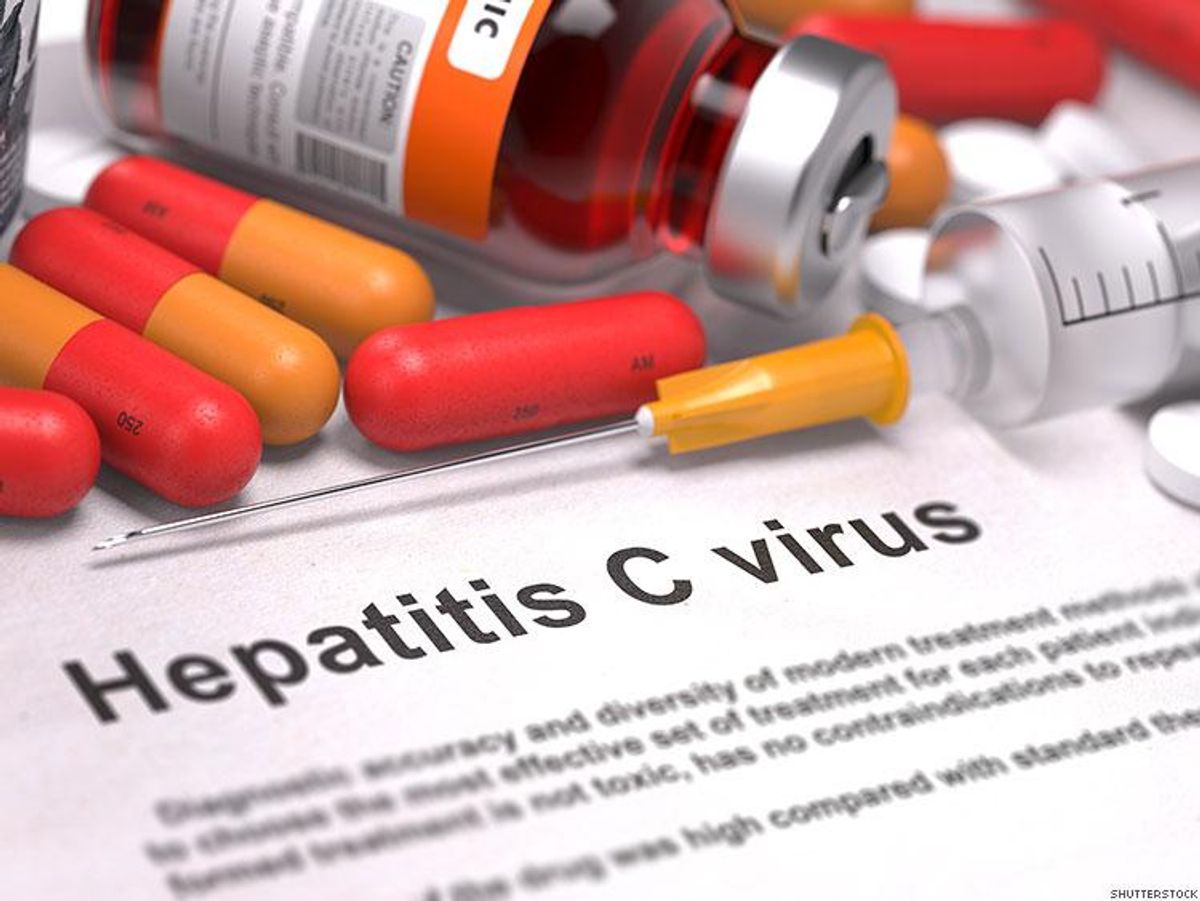Hepatitis C is a liver disease caused by the hepatitis c virus (HCV), which kills about half a million people each year. That’s the main reason why it’s a surprise for many to hear there’s a virtual cure.
With HCV, what begins as an infection frequently becomes a chronic illness with serious, long-term health consequences. Although many people with HCV don’t realize they have it, the Centers for Disease Control and Prevention estimates that 3.5 million Americans are actually living with the blood borne virus, which the World Health Organization says is most often transmitted through “unsafe injection practices, inadequate sterilization of medical equipment, and the transfusion of unscreened blood and blood products.” It can be transmitted sexually, as well, though those cases are rarer.
Although there have been treatments available, none offered a long-term solution to the chronic illness — until now. Recent advancements have resulted in what is essentially a cure for 90 percent of users. Available only to those who haven’t previously treated their hep C, new HCV therapies, such as Gilead’s Harvoni and Sovaldi, make it possible for people living with the disease to achieve a sustained virologic response. In other words, taking a short-term regimen can have a long-term impact, giving many a chance to live without hep C symptoms.
There are even more HCV drugs in the pipeline. Gilead just got priority review for a new combo therapy that uses there Sovaldi with velpatasvir, a NS5A inhibitor, for the treatment of chronic genotype 1-6 hepatitis C infection. Merck got approval for Daklinza (daclatasvir) to treat those with chronic hep C genotype 3, while Janssen is fast-tracking the Achillion Pharmaceuticals created NS5A inhibitor, ACH-3102.
Unfortunately, there’s a catch to this 90 percent cure rate. If you miss even a single dose it could render the medication ineffective. Dr. Imtiaz Alam, gastroenterologist and the founder of the Austin Hepatitis Center, told Gastroenterology & Endoscopy News that patients with HCV who forget to take their pill by even 24 to 48 hours could inhibit responses to these newer treatments. Since these curative therapies are incredibly expensive — they can cost $1,000 a day or more — patients are unlikely to get a second chance at a cure.
“With Medicaid restricting this therapy to a once-in-a-lifetime treatment, and most — although not all — insurance companies requiring week four RNA [ribonucleic acid] levels before [they’ll authorize the remaining eight weeks of treatment], it’s essential to keep on top of adherence,” says Alam. “If patients are taking these medications correctly, they all should be negative by the end of week four of therapy.”
Some who doesn’t adhere to their HCV treatment regimen would essentially be squandering a cure, and wasting thousands of their own and tax payers’ dollars. A three-month supply — the recommended treatment span — of Sovaldi or Harvoni costs $80,000. As the Washington Post discovered, much of that money comes from federal programs. For example, Medicare spent $4.5 billion in 2014 alone on these curative hep C therapies.
People living with HIV are particularly susceptible to the HCV, which can progress more quickly to liver damage in those with both viruses. The CDC reports approximately 25 percent of all HIV-positive people also have HCV. The coinfection with HIV and HCV is especially high among injection drug users, with as many as 90 percent living with both HIV and Hep C.
Because of the cost and the drugs’ effectiveness on non-compliant patients, many people will likely get one and only one chance to take advantage of the HCV cure. Compliance with HCV therapy is all the more important for people living with HIV. According to a new study, more HIV-positive people in the U.S. are dying from untreated HCV than any other co-morbidity. Because of those risks and the fact that a person can live with the disease undetected for years before presenting symptoms, the U.S. Public Health Service/Infectious Diseases Society of America recommends all people living with HIV get tested for HCV and talk with your doctor about your risks.
And when you get drugs to treat it, by all means, don’t skip a dose.













































































